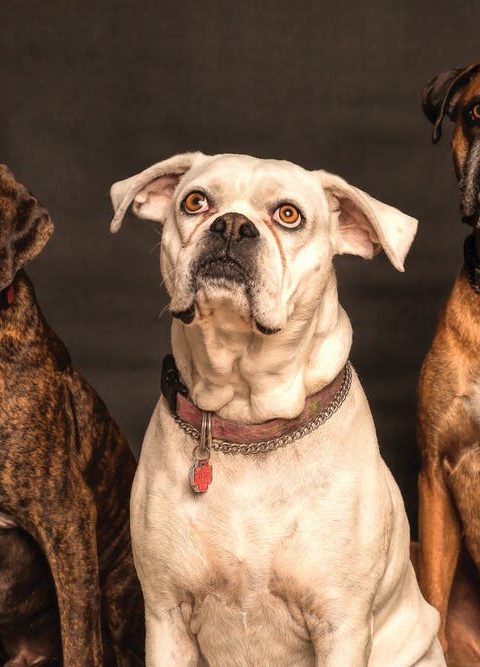Gastric dilatation-volvulus, also known as “bloat” or “GDV,” is a life-threatening condition that affects dogs. When the stomach is dilated and bloated due to gas, food, and liquid, it is more likely to spin out of its normal position; after rotating (generally 90-360°), the stomach might twist off, resulting in a gastric dilatation-volvulus (GDV).
A GDV is a condition that prevents stomach contents from migrating out of the stomach and into the intestines, and it is lethal if not treated right away. Because the stomach dilates, important blood arteries in the abdomen, such as the caudal vena cava, are compressed, resulting in severe indications of shock.
Questions to Ask Your Vet About Bloat
We have summarized a list of the frequently asked questions to a veterinarian about Gastric dilatation-volvulus, also commonly known as “bloat” or “GDV.” Read through them to better understand what GDV is all about and get more info.
If my dog has bloat, what signs of shock would it display?
The following are clinical indications of shock:
- An increase in heart rate
- Collapse
- Pale gums
- Weakness
- Lethargy
- Blood pressure that is too low
- Increased rate of respiration
What happens if my dog gets bloat but doesn’t need surgery?
GDV is a surgical emergency, and dogs with the disease must undergo surgery to survive. GDV, if left untreated, can lead to the following:
- Severe discomfort
- Blood flow to the stomach and intestines is reduced
- Tissue necrosis is a condition in which tissue dies
- Stomach rupture
- Sepsis (sepsis) is an (i.e., when bacteria enters the bloodstream)
- Aspiration pneumonia, irregular clotting leading to DIC, and other complications can occur.
- Arrhythmias of the heart that is abnormal
- A spleen that has become engorged
- An abnormal amount of blood is leaking into the abdomen.
- Sudden death
Which dog breeds are prone to bloating?
Unfortunately, certain breeds, such as big dogs with deep chests, are more susceptible to GDV. The following breeds’ owners should be especially aware of the potential of GDV in their dogs and keep a close eye on them:
- Poodles
- Great Danes
- Wolfhounds
- German Shepherds
- Other breeds with similar body forms or proportions
Is My Small Dog Safe From Bloat?
Bloat has been documented in smaller breeds on rare occasions:
- Basset Hounds
- Dachshund
- Pekingese
- Shar-pies
- Mixed-breeds
What clinical indicators of bloat should I watch in my dog?
The following clinical indications of GDV (bloat) should be reported to your veterinarian or an emergency veterinarian right away. If your dog exhibits these symptoms in the middle of the night, you must get out of bed and seek treatment from an emergency Corpus Christi vet; waiting until the morning to treat your dog can be fatal.
- Swallowing problems
- Drooling/hypersalivation (this is due to the stomach being twisted and the inability to swallow the saliva)
- Sprung ribs or a huge, enlarged stomach
- Constant retching or attempts to vomit – yet nothing comes out
- Continuous panting
- Not consuming any food
- Apprehension (e.g., pacing, crying, whining, not being able to sleep)
- Severe discomfort
- Inability to move or weakness
- Collapse
What is the best way to cure bloat in dogs?
GDV is treated with intensive intravenous (IV) fluids, pain medication, ECG and blood pressure monitoring, anti-vomiting medicine, and the removal of the air/food from the stomach by your veterinarian. After the patient has been stabilized, immediate surgery is required to place the stomach properly, untwist it, staple it down, and ensure no other organs or tissues (such as the spleen, esophagus, or intestines) are harmed. Check out EverHartAH.com for more vet info.
What is the prognosis if I take my dog to the vet for bloat?
With supportive treatment and surgery, the prognosis for recovery from GDV is favorable (over 90 percent survival). Remember that the longer you wait and ignore the warning symptoms, the worse your prognosis will get.








